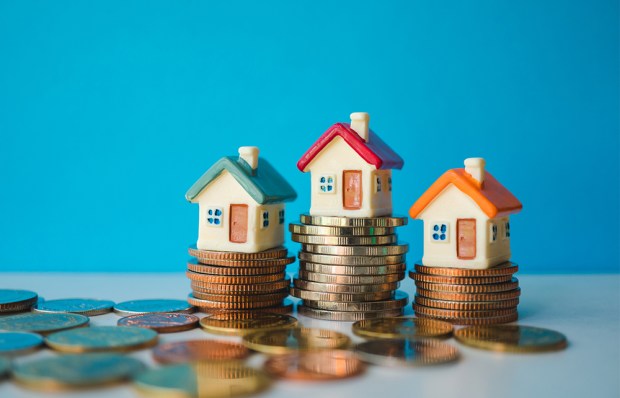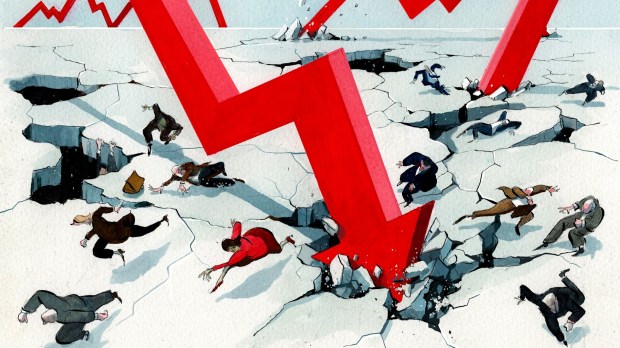Back in November, when Downing Street’s pandemic responses looked daily more incompetent, the announcement of a ban on sales of new petrol and diesel cars by 2030, ten years earlier than originally planned, was largely greeted — along with the rest of the ‘Ten Point Plan for a Green Industrial Revolution’ — as another exercise in Johnsonian distraction and thin-air number-plucking. Auto makers responded defensively, citing the huge costs of re-engineering model ranges in short order and the shameful failure of ministers to encourage investment in plug-in networks for electric vehicles. Meanwhile, Tesla founder Elon Musk announced he would site a battery ‘gigafactory’ in Germany because Brexit made the UK ‘too risky’.
Fast-forward three months and sense the change. The PM looks almost masterly as he rides the vaccine wave, while the auto industry performs competitive pivots to embrace its electric future. Ford will stop making carbon-fuelled cars by 2030; Jaguar Land Rover and Bentley will have fully electric ranges. Nissan is upping its battery production at Sunderland, where its electric Leaf is already made. A start-up called Britishvolt has plans for its own gigafactory at Blyth in Northumberland (Coventry wants one too) and another called Riversimple, backed by Siemens of Germany, aims for mass production of hydrogen-powered cars in Wales.
All this points to a remarkable shift in an industry that just a few months ago looked beleaguered by lockdown, Brexit and legacy technology. Maybe there was some subsidy-seeking gamesmanship afoot as manufacturers played up the difficulties while knowing all along that this was their destiny. But if the PM’s tenure lasts and his luck holds, he’ll be able to say: I told you so, set an impossible challenge — vaccines in nine months, carbonless cars in a decade — and bingo, the private sector will rise to it.
On that basis, let’s not entirely rule out his latest madcap call: to connect Britain to Northern Ireland via a giant tunnel-round-about beneath the Isle of Man.
Boom time for minerals
An ironic side-effect of an accelerating green revolution is a boom in the very old-economy sector of metals and minerals. The mining giant BHP is now at the top of the FTSE 100 and has declared a record dividend, as has its Swiss-based rival Glencore, while Rio Tinto shares are close to their previous 2008 peak. Companies that are strong in copper, nickel and cobalt foresee growing demand from the electric vehicle and wind turbine industries, following supply shortages during the pandemic — while those that ship coal to China for its power stations and steel mills are still prospering too.
‘Many mineral shares are already at all-time highs,’ warns our veteran stock-picker Robin Andrews. ‘But there’s value to be had among the rarer metals the world needs for a greener future. Investors might consider Pensana Rare Earths, potentially Europe’s first indigenous source of neodymium and praseodymium (used in magnets for power generation), or Canadian-quoted lithium producer Orocobre. Anglo Pacific Group is a relatively low-risk play on rising demand for nickel, vanadium and copper, while Hochschild and Fresnillo are worth a look as producers of silver for electronics as well as a store of value. I hold Pensana and Hochschild.’
As ever, of course, do your own research. But I was delighted to hear from a reader who had done something I’d never dare suggest, which was to have bought £500 worth of each of 24 shares mentioned here in 2019 — and very nearly doubled his money.
Uber convenient
The UK Supreme Court’s ruling that Uber drivers are not independent contractors but workers entitled to minimum wages and holiday pay is a blow to the gig economy in which millions of Britons now earn their livings. At a time when a million more are losing jobs in retail and hospitality, that looks like an unwarranted judicial curb on the transformative power of free markets. And millions of habitual Uber customers will consider it a damned inconvenience if fares rise and driver numbers shrink.
I’ve never been a keen Uber user myself, but the last time I did so — it was from 130th St in Harlem to 37th St in Manhattan — I’d have to say it was quicker and cleaner than any New York yellow cab ride I can recall. In London I’ve always preferred traditional black taxis for the conversation and the Knowledge. But what I observe is that the real value of Uber is the convenience of the app — not the cheapness of the ride.
The latter is the product of drivers’ willingness to work for ultra-low rates plus competition-gouging by Uber itself, which has never made a profit. You wouldn’t buy a cheap shirt online if you knew the seamstress was exploited by a ruthless multinational would-be monopolist; why buy a journey on similar terms? What we all want, in travel as in many other aspects of life, are efficient services offered by multiple competitors at fair prices. If the court’s ruling leads that way, it’s a good thing.
Can’t wait to eat out
I had my first vaccine last week, followed by a night of wild dreams that would have been value for money in a Shanghai opium den. I’m due a second shot of Pfizer psychedelia ahead of the reopening of indoor hospitality in May. Pent up like a private-equity investor with nowhere to put his cash, I can’t wait to reintroduce the regular restaurant tips — recently visited rather than distantly remembered — that I know readers enjoy more than economic theory and banker-bashing. My last outing, incidentally, was to Quo Vadis in Soho, at a tented pavement table on 12 December. The West End was seething with Christmas shoppers, revellers, vagrants and, as we now know, the vicious B117 Kent variant. So I count that a lucky escape and like the Prime Minister I’ll emerge step by cautious step, beginning with April’s breeziest beer gardens.
Got something to add? Join the discussion and comment below.
Get 10 issues for just $10
Subscribe to The Spectator Australia today for the next 10 magazine issues, plus full online access, for just $10.
You might disagree with half of it, but you’ll enjoy reading all of it. Try your first month for free, then just $2 a week for the remainder of your first year.















Comments
Don't miss out
Join the conversation with other Spectator Australia readers. Subscribe to leave a comment.
SUBSCRIBEAlready a subscriber? Log in